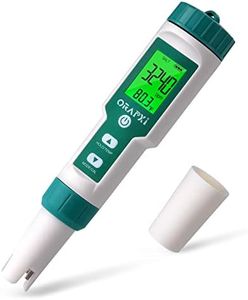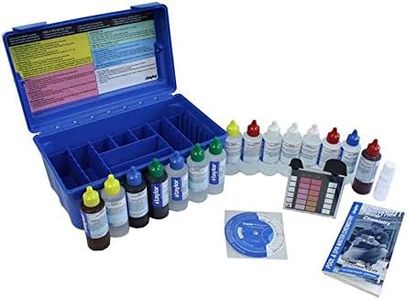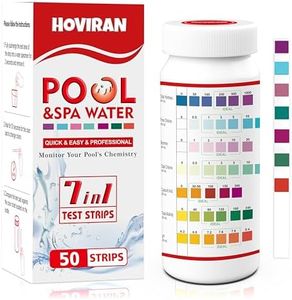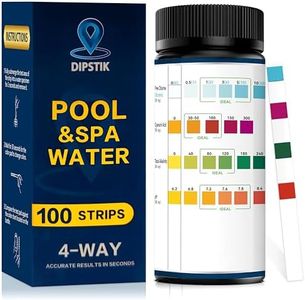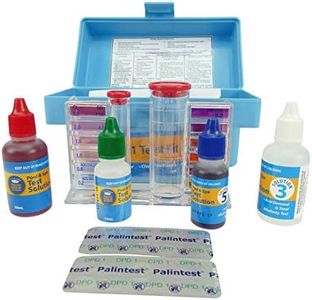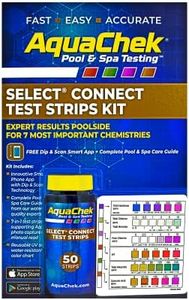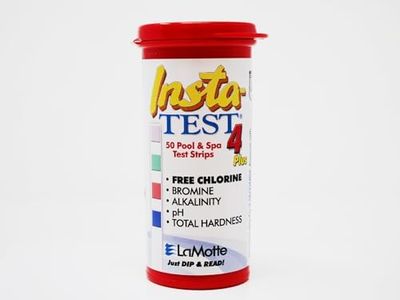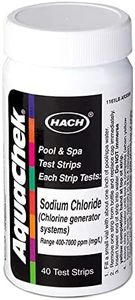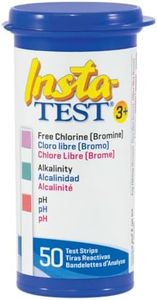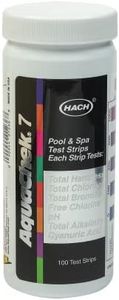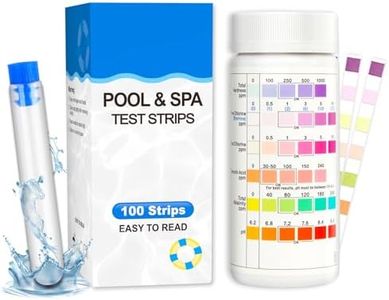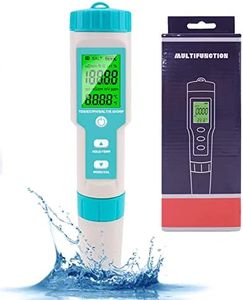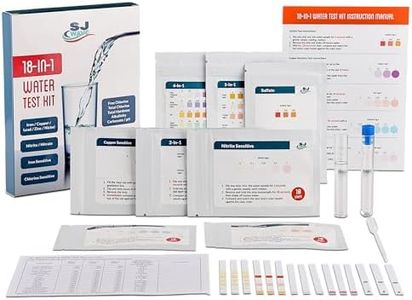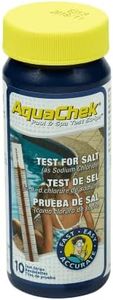We Use CookiesWe use cookies to enhance the security, performance,
functionality and for analytical and promotional activities. By continuing to browse this site you
are agreeing to our privacy policy
10 Best Pool Water Test Kits
From leading brands and best sellers available on the web.By clicking on a link to a third party's website, log data is shared with that third party.
Buying Guide for the Best Pool Water Test Kits
Choosing the right pool water test kit is essential to maintain clean, safe, and comfortable water for swimming. A suitable test kit helps you regularly check vital water quality indicators, allowing you to detect issues early and treat your pool effectively. The main goal is to have a kit that's easy to use, accurate, and suited to the level of maintenance and pool size you have. Understanding the main specifications will make it much easier to pick one that matches your needs.Test ParametersTest parameters refer to the different water quality aspects that the kit can measure, such as chlorine, pH, alkalinity, hardness, and cyanuric acid. The more parameters a kit can test, the more complete a picture you'll get of your pool's health. If you only want to check the basics, a kit that covers chlorine and pH is usually sufficient. For saltwater pools, or those with special water treatment systems, you might need additional tests for salt or stabilizer. Choose a kit with parameters that correspond to your main concerns and the recommendations for your specific pool type.
Type of Test (Strips vs Drops vs Digital)Pool test kits come in strip, liquid (drop-based), and digital formats. Test strips are very simple and quick—they involve dipping a strip in the water and comparing the colors to a chart. Drop tests provide more precise readings but require more steps and careful measuring. Digital testers give the most accurate and easy-to-read results but can be more complex and require batteries. Pick strips for convenience and ease, drops for accuracy and thoroughness, and digital testers for those who want the easiest precise readings with minimal guesswork.
Ease of UseEase of use covers how simple the kit is to operate, interpret, and repeat. Some kits are beginner-friendly, with clear instructions and visual comparisons, while others require careful handling or more frequent calibration. If you're new to pool care or want quick checks, go for a kit known for being straightforward. If you're comfortable with pool chemistry, a more detailed kit might give you information that helps fine-tune your water quality.
AccuracyAccuracy looks at how close the test results are to the true values in your pool water. More accurate kits help prevent over- or under-dosing chemicals, which can save time and money and protect swimmers. In general, liquid (drop-based) and digital tests tend to be more accurate than test strips, which can sometimes be harder to interpret due to color matching. If maintaining precise chemical balance is important to you, or if you have people with skin sensitivities using the pool, accuracy should be a top priority.
Frequency of Testing/Number of Tests IncludedThis refers to how many times you can use the kit before running out of test materials. Test strips usually come in larger quantities, while drop kits may include enough reagent for a set number of tests. If you plan to check your pool frequently (such as during peak swimming season), look for kits that accommodate frequent use or can be easily refilled. For occasional testing, a smaller kit may be sufficient.
Storage and Shelf LifeStorage and shelf life determine how long the test kit or its components remain effective. Exposure to heat, sunlight, or moisture can reduce accuracy, especially with strips and liquid reagents. If you live in a hot or humid climate, consider kits designed with protective cases or individually packed strips. Always check the expiration dates and storage recommendations; if you test infrequently, you’ll want a kit with a long shelf life so you can rely on it whenever you need it.
